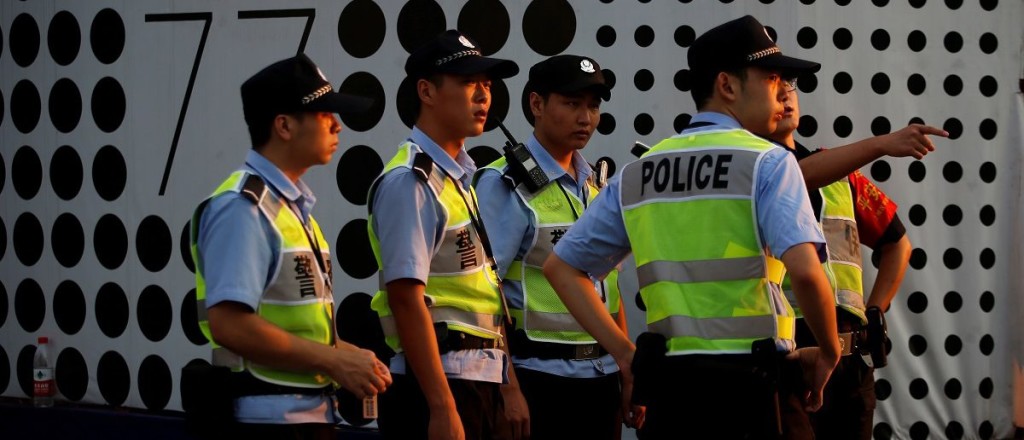
Security personnel keep watch at a subway station before the G20 Summit in Hangzhou, Zhejiang province, China September 1, 2016. REUTERS/Aly Song
China says its G20 Summit was a huge victory, but to achieve success, it launched an intense campaign to silence potential troublemakers.
China supposedly detained journalists, put dissidents under house arrest, sent city residents away, and implemented extreme censorship protocols to ensure the summit held in Hangzhou this past weekend went off without a hitch.
“The summit went smoothly and was a crowd-pleaser,” the Global Times, a Chinese tabloid, said Monday.
Five female journalists for the independent news site 64Tianwang, a Sichuan-based website, were reportedly “kidnapped” by Chinese police prior to or during the G20 Summit, says Reporters Without Borders.
The 64Tianwang journalists who were taken into police custody were Yang Xiuqiong, Lin Xiurong, Yuan Ying, Jiang Chenfen, and He Yazhen. Their families are unaware of their whereabouts.
Yang covered the arrest of 10 protesters on a train Saturday. Lin reported that China transformed a stadium in Hangzhou into a detention center for dissidents Friday. Yuan wrote about a gathering of 2,000 protesters in front of the Communist Party’s Central Commission for Discipline Inspection Friday. After their pieces came out, they disappeared.
Li Zhaoxiu and 64Tianwang founder and editor Huang Qi were allegedly instructed by authorities to “take a holiday,” which suggests that they were forced into temporary exile.
During the meeting between President Barack Obama and Chinese President Xi Jinping, Hangzhou was put on lockdown. “There are security forces at every intersection, and the plainclothes police and riot police are everywhere,” Yang Xiuqiong told Radio Free Asia before she disappeared.
Arrests were common in the days leading up to and during the G20 Summit. As of Sept. 2, at least 42 people had been detained in Jiangsu province and Shanghai, reports Chinese Human Rights Defenders (CHRD). “A majority of these individuals have been forcibly disappeared, putting them outside any legal protections and, hence, at greater risk of torture and ill-treatment,” explained CHRD in a statement.
In addition to detaining possible troublemakers, China also reportedly convinced around one-third of Hangzhou’s six million people to take a vacation, says the Guardian. For the G20 Summit, China turned the city of Hangzhou into a ghost town.
Factories were shutdown to prevent pollution. Apartments near the conference center were cleared out. Many businesses were closed. Migrant workers were sent away. Whole neighborhoods were left deserted. The Chinese government actually granted citizens a week-long holiday for the summit.
During the summit, China’s censors were on high alert, especially after a slip up by Xi during a speech. The Chinese president intended to say tongshang kuanong (facilitate commerce and be lenient to farmers), but he accidentally said tongshang kuanyi (facilitate commerce and loosen clothing). All traces of the gaffe were blocked by two official orders. This wasn’t the only thing that disappeared.
Words like “country,” “summit,” “airport,” and “Hangzhou” all triggered censors, explained the South China Morning Post. A recent CNN interview in which Obama criticized Chinese actions in the South China Sea was also banned, says Quartz.
Before Obama left for the G20 Summit, exiled human rights lawyer Teng Biao pushed the president to address what he called the “worst human rights crackdown” in decades.
Source: http://dailycaller.com/2016/09/07/human-rights-the-cost-of-a-crowd-pleasing-g20-summit-in-china/
